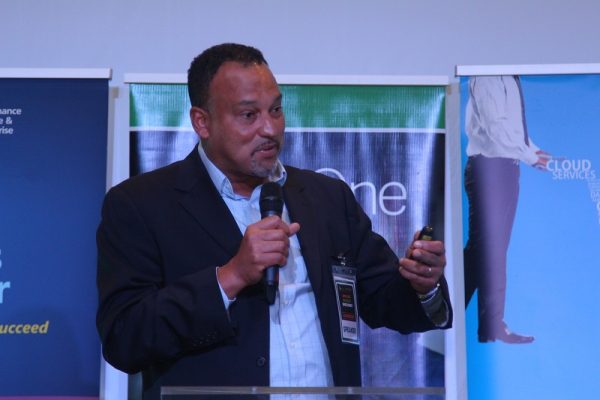The panel sessions at the Connect Nigeria E-Business Fair 2017 had a lot in them for those who were in attendance. Great ideas were brought to light, interesting business insights shared, and questions about enterprise growth answered.
Speakers painted a picture of Nigeria’s business landscape, pointing out the opportunities and challenges peculiar to it. They offered valuable suggestions for entrepreneurs seeking to build bigger businesses out of their startups.
Here, we relay some of the points made by the panelists about doing business successfully in Nigeria.
1. Bootstrapping is the preferable funding option for new businesses
Ahmad Mukoshy, founder of Gigalayer describes himself as a “bootstrap kind of guy”. In one of the sessions, he made the point that investors do not invest in unproven business ideas; they are more interested in businesses that have already demonstrated that they are viable.
“Nobody wants to give you money to do just anything”, Mukoshy said. “You can get money if you have proven that it’s possible to do what you’ve said you’re trying to do”. He suggested that new enterprises were better off focusing on generating revenue from customers and building their capacity through this means before calling for investment.
2. Businesses should start off with a global focus
Ayotunde Coker, Managing Director of Rack Centre, strongly advocates for businesses to take “an impossible view of the future”. At the eBusiness fair, he took up the task of showing how businesses can aim at being globally competitive, and grow by making a push in that direction.
“You need to start looking out to what it out there”, he said. “There’s nothing wrong with saying: first stop Nigeria, next stop West Africa…I’m going to be looking out and I’m going to make sure that I’m as good as anything out there”.
Coker pointed to Rack center as evidence that this way of thinking works. The firm has established itself as the most connected Tier III certified data center in West Africa.
3. Entrepreneurs should keep close tabs on their business’s financial position
Most small business owners aren’t accounting experts. They are unlikely to know exactly what their financials look like at any given point in time. And this is a big problem, according to Nikki Summers, Director of Sage One for East and West Africa. In her presentation, she connected the failure of 60-80% of businesses within their first two years to poor financial management. But she also said that there were inexpensive accounting solutions available to small business owners, asides the option of hiring an accountant- solutions like those provided by Sage One.
4. Engagement with regulators and tax authorities is important
Being in the know about the laws that govern the industry in which you operate can save you from having to bear the consequences of falling foul of the rules. This point was made by Gossy Ukanwoke, founder of Beni American University Research and Development, at the eBusiness fair. He encouraged business owners to find out and engage regulators in their sectors in order to keep themselves from accruing penalties imposed by such bodies on erring enterprises.
5. Partnerships are vital
Setting out on one’s own isn’t really the best startup path to take. At least, Simeon Ononobi, co-founder of MyAds doesn’t fancy going that way.
“Make sure you get partnerships”, he advised. “You cannot start up without having a partner; it doesn’t make sense”.
Ononobi has walked this talk. He is working with two other co-founders to grow MyAds into a major player in the global mobile advertising space.
Collaborating with partners that compliment one’s skills with theirs can make the going easier on the not-so-straightforward growth path that startups ply.






